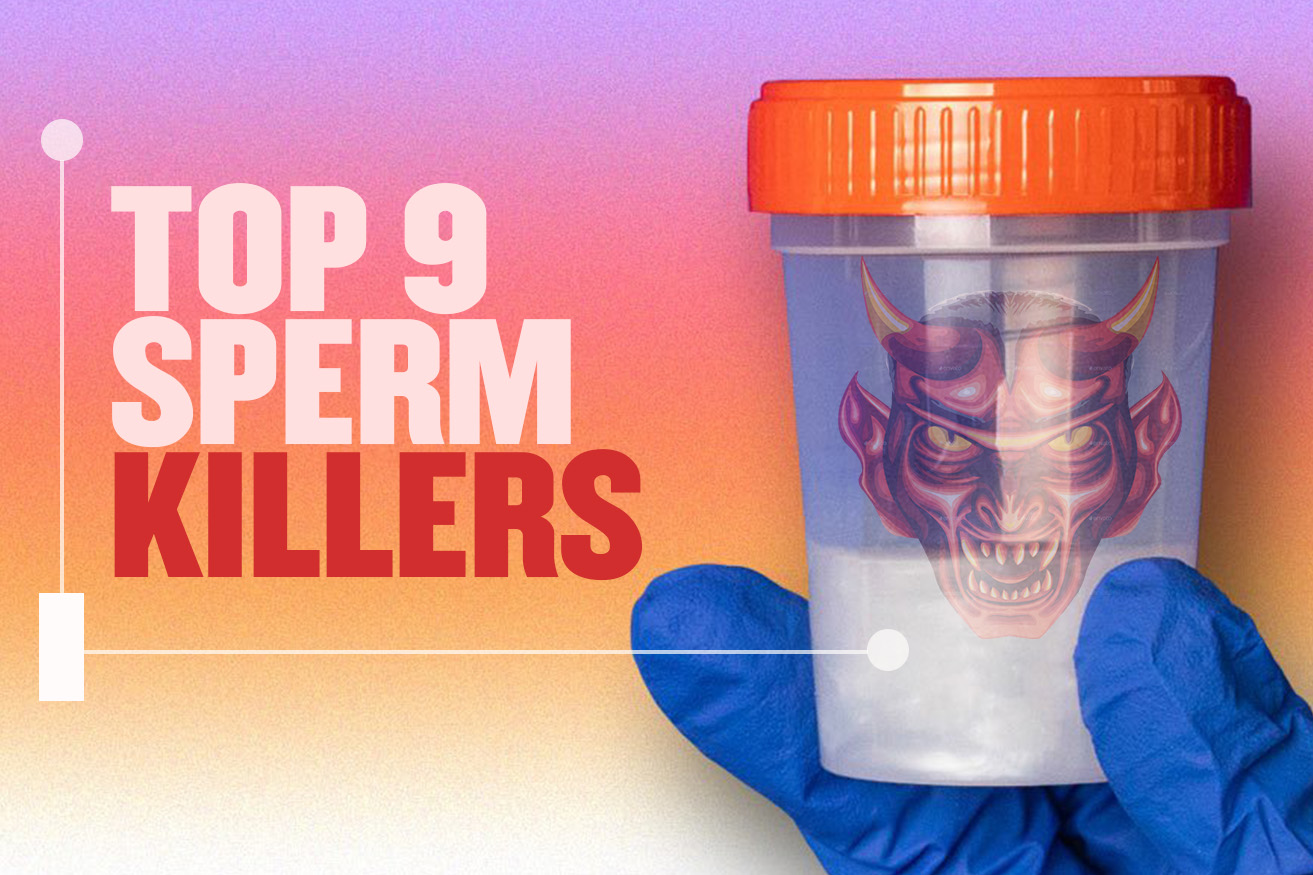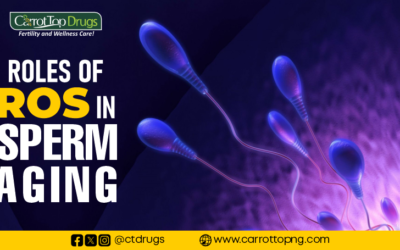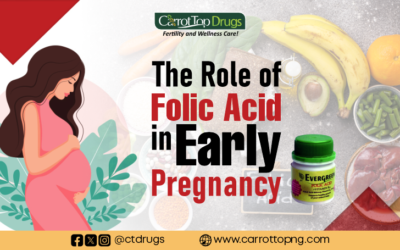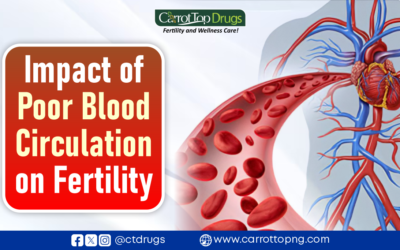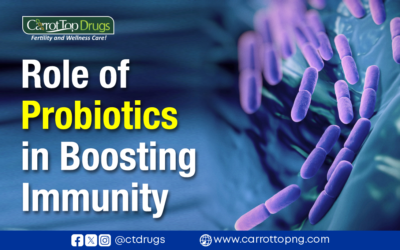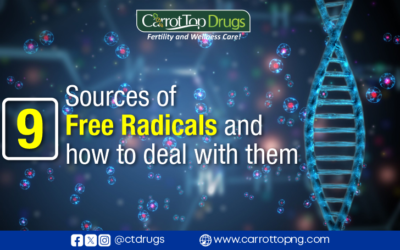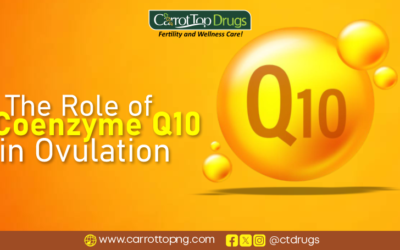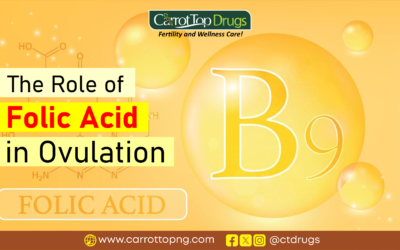Introduction
Sperm health is vital for male fertility and reproductive success. However, various factors in our environment and lifestyle can negatively impact sperm quality. Understanding these sperm killers and taking proactive steps to protect sperm cells is crucial for maintaining optimal reproductive health.
Incidence of Male-Related Infertility
Traditionally, infertility has been predominantly associated with female factors, but recent studies have highlighted the substantial contribution of male-related factors to infertility cases. In fact, it’s estimated that male-related factors contribute to approximately 40-50% of all infertility cases, however, this depends on different regions. It is also estimated that about 7% of men are challenged with infertility.
Sperm Killers
In this section, we would discuss the sperm killers. Here they are:
Chemical Exposures
Everyday products like cleaning agents, pesticides, and plastics contain harmful chemicals known as endocrine disruptors. These chemicals can interfere with hormone production and disrupt sperm production and quality. Minimizing exposure to these chemicals by using natural or organic alternatives can help protect sperm cells.
Smoking and Tobacco
Smoking is one of the leading causes of decreased sperm quality. The toxic chemicals in cigarettes, such as nicotine and carbon monoxide, can impair sperm production and motility. Additionally, exposure to secondhand smoke can also harm sperm health. According to a research conducted by M. F Vine, cigarette smoking has been associated with reduced semen quality.
Alcohol Consumption
Excessive alcohol consumption has been linked to reduced sperm count and motility. Alcohol can disrupt hormone levels and impair sperm production. While moderate alcohol consumption may not have a significant impact, excessive drinking should be avoided to protect sperm health. S La Vignera et al in a research study revealed that alcohol consumption is associated with a deterioration of sperm parameters.
Unhealthy Diet
Poor dietary choices, such as consuming processed foods high in saturated fats and sugars, can negatively affect sperm quality. A diet lacking in essential nutrients like antioxidants, vitamins, and minerals can impair sperm production and function. Opting for a balanced diet rich in fruits, vegetables, whole grains, and lean proteins can support optimal sperm health.
Obesity
Obesity is associated with hormonal imbalances and inflammation, which can impair sperm production and quality. According to a study conducted by Mina Darand et al., overweight and obese men have lower sperm counts than men with ideal weight. This makes obesity a sperm killer. Losing weight if overweight or obese can significantly improve fertility outcomes.
Lack of Exercise
Sedentary lifestyles and lack of physical activity have been linked to poor sperm quality. Regular exercise can help maintain hormonal balance, improve blood flow to the testes, and enhance sperm production. Engaging in moderate-intensity exercise for at least 30 minutes a day can support overall reproductive health.
Stress
Chronic stress can disrupt hormone levels and negatively impact sperm production. Stress management techniques such as meditation, yoga, deep breathing exercises, and adequate sleep can help reduce stress levels and support optimal sperm health.
Heat Exposure
Exposure to excessive heat, such as hot tubs, saunas, or prolonged sitting, can raise scrotal temperatures and impair sperm production. Avoiding prolonged exposure to heat sources and wearing loose-fitting clothing can help maintain optimal testicular temperature and protect sperm cells.
Tight Underwear
Tight underwear, especially those made from synthetic materials, can increase scrotal temperature and restrict airflow, which can negatively impact sperm production and quality. Opting for loose-fitting underwear made from breathable fabrics like cotton can help maintain optimal testicular temperature and support sperm health.
Mobile Phones and Radiation
Kavindra Kumar Kesari et al., revealed that prolonged exposure to electromagnetic radiation from mobile phones may have adverse effects on sperm quality. To reduce exposure, limit the use of mobile phones near the groin area and use hands-free devices whenever possible.
Medical Conditions
Certain medical conditions like diabetes, hypertension, and hormonal disorders can affect sperm production and quality. Seeking medical advice and proper treatment for underlying health conditions is essential for preserving sperm health and fertility.
Role of Antioxidants In Reversing The Effects of Sperm Killers
The use of antioxidants represents a promising strategy in combating the detrimental effects of sperm killers on sperm health. Antioxidants are compounds that neutralize harmful molecules called free radicals, which can damage cells, including sperm cells. By reducing oxidative stress and inflammation, antioxidants help protect sperm from oxidative damage and improve overall sperm quality. Here’s how antioxidants can be beneficial against sperm killers:
Protecting Sperm DNA
Free radicals can cause oxidative damage to sperm DNA, leading to DNA fragmentation and sperm dysfunction. Antioxidants such as vitamin C, vitamin E, and coenzyme Q10 help protect sperm DNA from oxidative stress, preserving its integrity and function. These antioxidants are found in our Evergreen Formula for Men, which is the supplement of choice.
Enhancing Sperm Motility:
Oxidative stress can impair sperm motility, reducing the ability of sperm to swim effectively and fertilize an egg. Antioxidants like selenium, zinc, and L-carnitine support mitochondrial function and enhance sperm motility, improving fertility outcomes. These nutrients are found in our Evergreen Motility for Men and Evergreen Formula for Men.
Improving Sperm Count:
Antioxidants play a crucial role in maintaining optimal sperm production by protecting sperm-producing cells (spermatogonia) from oxidative damage. By preserving the health of these cells, antioxidants help maintain healthy sperm count and prevent oligospermia (low sperm count).
Reducing Oxidative Stress:
Various lifestyle factors and environmental exposures, such as smoking, alcohol consumption, and pollution, can increase oxidative stress and damage sperm cells. Antioxidants scavenge free radicals and reduce oxidative stress, mitigating the harmful effects of sperm killers on sperm health. This is why taking supplements with antioxidants like Evergreen Formular for Men.
Enhancing Sperm Viability:
Antioxidants support sperm viability by preventing lipid peroxidation, a process that damages the cell membrane of sperm cells. By maintaining the structural integrity of sperm cells, antioxidants improve sperm viability and increase the chances of successful fertilization.
Combating Inflammation:
Chronic inflammation in the reproductive tract can impair sperm production and function. Antioxidants possess anti-inflammatory properties that help reduce inflammation and promote a healthy reproductive environment conducive to optimal sperm health.
Supporting Assisted Reproductive Techniques:
Antioxidant supplementation like Evergreen Formular for Men has been shown to enhance the effectiveness of assisted reproductive techniques such as in vitro fertilization (IVF) and intracytoplasmic sperm injection (ICSI). By improving sperm quality, antioxidants increase the likelihood of successful fertilization and pregnancy.
Conclusion
Protecting sperm cells from various environmental and lifestyle factors is crucial for maintaining optimal reproductive health. By being aware of the top sperm killers and implementing strategies to mitigate their effects, individuals can improve sperm quality and enhance fertility outcomes.
FAQs
- How does age affect sperm quality?
- Age can impact sperm quality, with sperm motility and DNA integrity decreasing as men age.
- Can exposure to environmental toxins affect sperm health?
- Yes, exposure to environmental toxins like heavy metals, pesticides, and pollutants can harm sperm production and quality.
- Is there a link between stress and infertility?
- Chronic stress can disrupt hormonal balance and impair sperm production.
- How long does it take for sperm to regenerate?
- Sperm production takes approximately 74 days from start to finish. However, it can take several months for sperm quality to improve after making lifestyle changes or undergoing medical treatments.
- Can supplements improve sperm quality?
- Some supplements like antioxidants, vitamins C and E, zinc, and coenzyme Q10 have been shown to support sperm health. That is why we recommend Evergreen Formular for Men.

